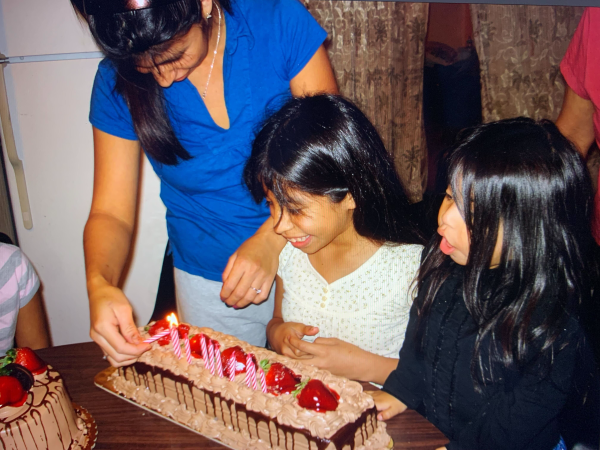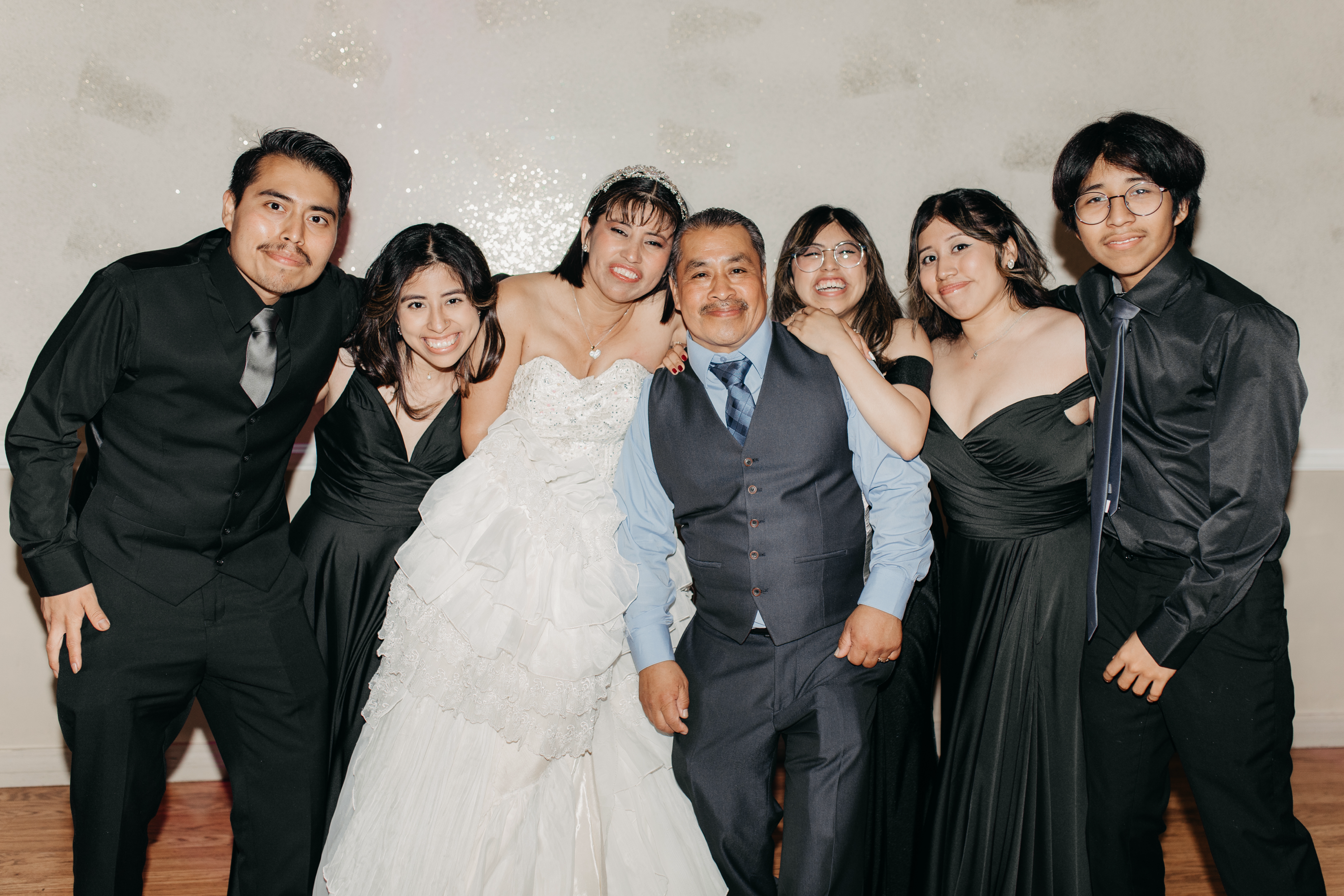Growing up, it was a daily ritual for most of us to sit around the living room watching TV shows, family sitcoms—or for us Hispanics—telenovelas on Univision and Telemundo. These Spanish soap operas never failed to portray a parental figure who was very loving and used gentle parenting, whether or not their child valued it. In one scene, a mother walks in quietly and places herself on her child’s bed, giving them a gentle tap on the shoulder with a soft smile plastered on her face, ready to say, “Good morning.” For some, it perhaps didn’t invoke any emotions, that was just their normal way of living. However, for other viewers like me who couldn’t relate to that type of treatment, it was comforting to idealize and fall in love with these actors who displayed a glimpse into what gentle parenting could be like.
I can say that my mornings were never close to what I watched on the classic telenovela and personal favorite Destilando Amor. The role of Clarita played by Ana Martin was beautifully portrayed with her soft, loving voice. I would be awakened to the sound of my mother’s voice instead, her tone stern and loud saying, “Ya ‘parate! Ya van hacer casi la una!” (Get up! It’s almost one o’clock!) It was actually only 10:30 a.m., but if there is something about Hispanic mothers that one should know about, it is their use of hyperbole and sarcasm to prove a point. It is the best alarm to wake you up, thinking you are extremely late just to be relieved when glancing at the time.
Unfortunately, some of us either never or rarely experienced gentle parenting. Perhaps some have had a conversation with their parents asking them why they behave the way they do. I know I have, and the answer from them was that my grandparents could not provide them with gentle parenting. I suddenly realized then that it has become a cycle that extends from generation to generation.

Judith G. Smetana’s research from Current Opinion in Psychology said, “Authoritarian parenting is widespread in non-Western cultures and among lower socioeconomic status (SES) and ethnic/racial minority parents in the U.S.”
This type of parenting style is commonly seen within immigrant and minority families. When economic status comes into play, living conditions can be difficult for low-income families forced to reside in dangerous areas—provoking parents to be very overprotective of their children’s safety. Physical discipline is also a common belief by some parents who see it as a necessary step towards a child’s growth.
There is always the common phrase: “There is no perfect parent.” Of course not, most children are not looking for perfection. They are just looking for affirmation and signs of love and acceptance from the two people who brought them into this world. These are two important aspects that will not only influence the backbone of a child’s growth, but will also shape them into the person they will become during adulthood.
Sociology professor Sergio Banda currently teaches Introduction to Sociology and Criminology at Fullerton College. Banda also teaches upper division courses such as sociology of the family and social interaction at California State University, Fullerton.
“I think that there are certain things that we consciously will do because our parents did the same thing,” said Banda. “You know, parents have certain expressions and certain ways to do things. When you have kids, you’ll find yourself saying or doing the same things that your parents did, even if you hated it.”
He believes that parents can influence a certain personality within us, but one has the choice to put in the work to be different from our parents if that is what we truly wish. He is a firm believer in the power of free will.
Parenting style continues to be studied to determine the common factor. Based on the Growing Up in Ireland childhood cohort study, “One factor that may play a mediating role between paternal depression and adolescent internalizing problems is parenting style,” said authors Lisa-Christine Girard and Lorna Maciver.

No parent is ever given any answers or guidelines on how to properly raise a child. Every parent is unique, based on the ideals and values they were given growing up. The type of environment they grew up in during their childhood influences what type of social skills they carry throughout their lives, even as parents themselves.
There should be a point where the line crosses the limit of where it gets damaging for a child’s mental and emotional health. Everyone has certain limits and boundaries of how much they can tolerate in rarely receiving positive or affectionate treatment from their own moms. As the eldest daughter, growing up with the pressure of responding for the stability of the household when my mom is not able to do so can be overwhelming. Especially when there are other siblings that can help, but are not pressured to do so with any consequences.
When asked what advice he could give to Hispanic children who are having a hard time approaching their parents about these issues, Banda said, “If one is able to have a good conversation with their parents about these disagreements or issues that’s great. But if that’s not possible, then you can’t get stuck with it because the damage is greater.”
Perhaps some have already made the first move in communicating their feelings and unfortunately didn’t receive the response they wanted. Of course, this can cause a mix of emotions, especially disappointment that parents could not find a way to be more self aware or apologetic for their actions.
When we communicate that we want to be understood, but those feelings are disregarded or neglected, it is tough to bounce back from that. Over time, it can lead to resentment towards the parent.
It goes even as far as to devalue who we are as individuals as if we are not worthy of love and respect. From here, it is where some make the decision to keep the chain going. They become parents themselves, and they become a mirror of the parenting they grew up with.
“We need to make peace with that and not repeat the cycle if we ever have children. Just take the good stuff, as long as the parents were well-intentioned, and it was just a matter of not knowing better or being too stressed out. I think sometimes we need to give our parents a break,” said Banda.

Banda also gives advice to those who are trying to heal from a possible resentment they have built towards their parents throughout the years.
“You can’t go back and blame everything on that event. At some point, you need to make the conscious effort that you have to continue on with your life and you have to move forward,” said Banda.
Forgiveness and acceptance are always the hardest phases to get through during the process of healing. The darkness behind having to reminisce painful moments we went through as children that opened up old wounds. No child deserves to be hurt. However, it’s always easier to place the blame towards others for our current choices and lifestyle. We cannot allow our wounds from the past to dictate who we become or make choices that may hurt ourselves, others, and especially our future children. The change starts with us. We can always break free from the chains of our generational cycle.
Taken from the Summer 2024 print issue of Inside Fullerton. Read it here.



